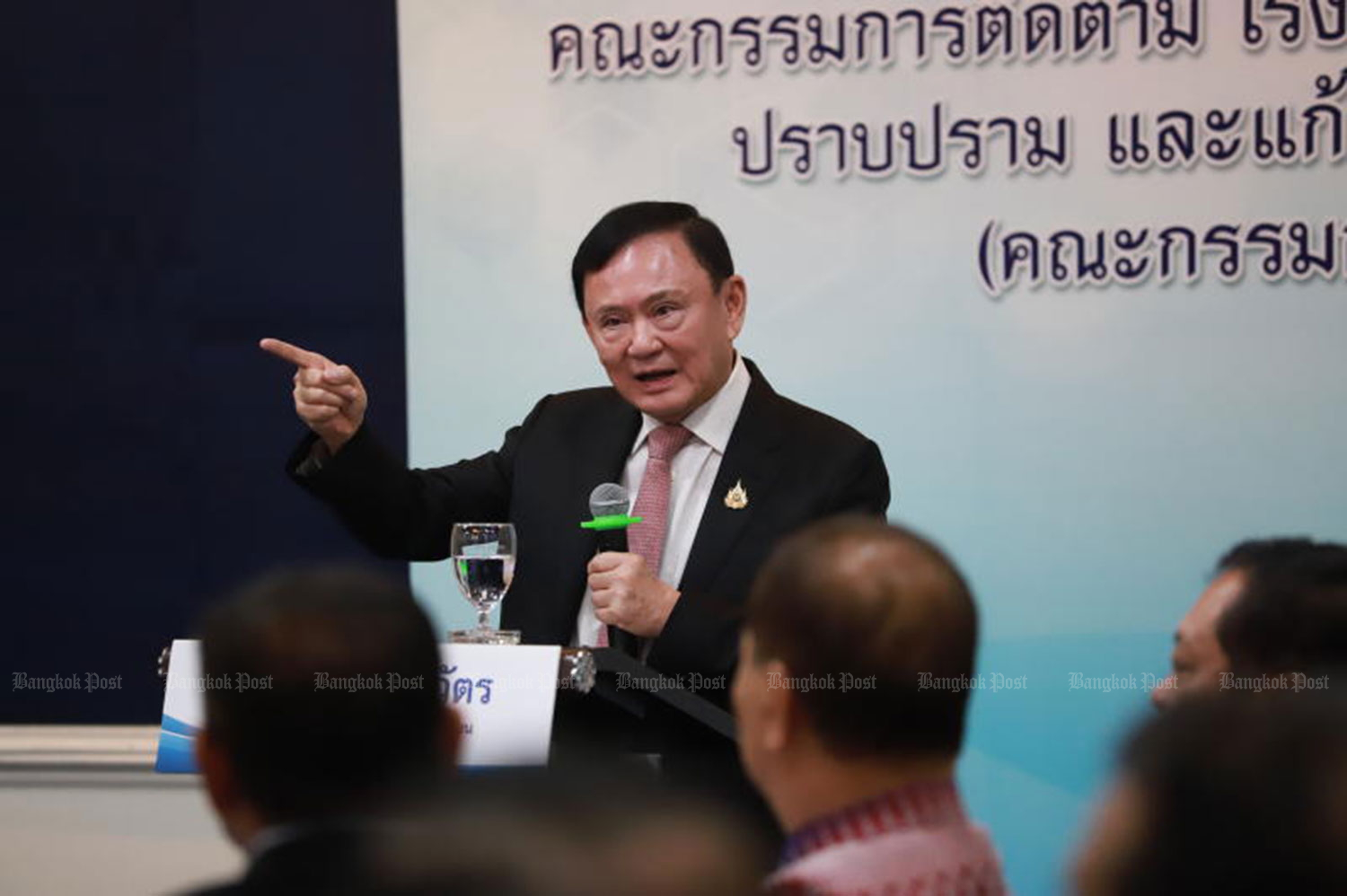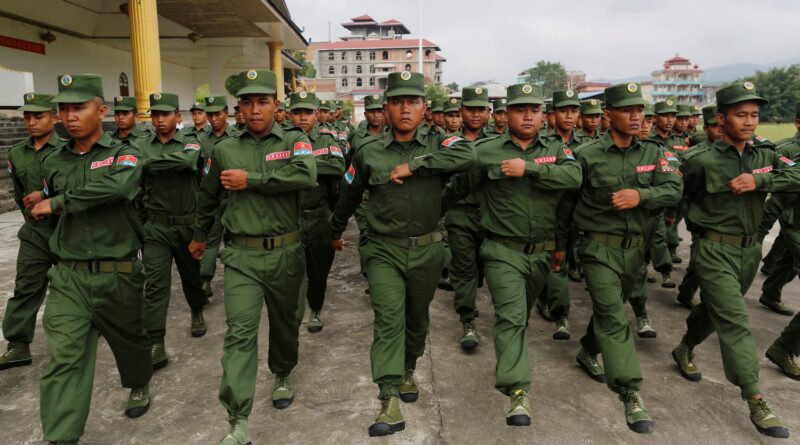Wa army dismisses Thaksin’s drug claims
Ex-PM’s tough talk sparks debate over how to deal with drug deluge from Myanmar

The United Wa State Army (UWSA) has dismissed as groundless the allegation made by former prime minister Thaksin Shinawatra that it is the prime source of narcotics smuggled from Myanmar into Thailand and needs to be dealt with.
Responding to Thaksin’s claims, UWSA spokesperson Nyi Rang said, “It is just an accusation.”
“They need to present evidence for their claim. We are fighting [drugs], as they are. Everyone knows there are multiple armed groups in the border regions. We have been continuously fighting [drugs],” he told The Irrawaddy, an independent Myanmar news portal.
Thailand’s claims that drugs come from Wa territory does not necessarily mean that the Wa are involved in the drug trade, Nyi Rang added.
“We live in the border region, and drug trafficking from inland will inevitably pass through the border,” he said.
Bangkok-based journalist Patrick Winn, author of the book Narcotopia, contends that while the UWSA runs a full array of essential government services in its territory, it effectively presides over a “narco-state”
“Think of it as a state wrapped around a cartel,” Mr Winn said in an interview with The Diplomat. “To be clear: these days, Wa commanders seldom oversee meth labs directly. They’d rather let Chinese syndicates run labs on their territory and charge rent. Outside syndicates also handle international trafficking — and that’s where you make the juiciest profits.”
In a guest lecture delivered at the Office of the Narcotics Control Board on Tuesday, Thaksin singled out the UWSA and said Thailand should show no mercy to its enemies.
He urged the Thai government to push the Myanmar military junta to act within one or two months, warning that if they fail, Thailand may need to intervene directly. If drug production continued afterward, he said, that would be considered an act of hostility.
Prime Minister Paetongtarn Shinawatra, responding on Thursday to her father’s comments, said she always welcomes any information useful and practical for the government’s continuous fight against drugs.
“Any information that is useful and can be acted upon, I am open to hearing — whether it comes from local villagers or residents of any community who can identify where drugs are coming from or which areas are being affected,” she said.
The police have already made major drug seizures based on such tip-offs, which shows that everyone can contribute to the country’s anti-narcotics work, said Ms Paetongtarn.
Proactive strategy needed
Assoc Prof Dulyapak Preecharush, a Southeast Asian Studies scholar at Thammasat University, supported Thaksin’s assessment of the drug production situation in Myanmar, saying the UWSA is a serious threat to Thailand.
He cited cross-border incursions, pollution in the Kok, Sai and Mekong rivers that flow into northern Thailand, and extensive narcotics trafficking as a direct consequences of the UWSA-controlled operations in the Golden Triangle region.
He called for a more proactive strategy involving pressure tactics to force the UWSA to cease its hostile activities. He stressed the importance of clear timelines for the Myanmar government’s response, and that vague promises would not suffice.
“In principle, I for now agree that we should no longer wait until new problems emerge before we begin dealing with them,” he said.
“Thailand had better implement a proactive strategy to enhance its capacity to pressure the UWSA to stop their hostile behaviours, which are a threat to Thailand and the region alike.”
Thailand’s strategic response should involve three main agencies: the Ministry of Foreign Affairs, Ministry of Defence and National Security Council, he said.
He also recommended using existing regional mechanisms such as the Regional Border Committee to intensify drug-related discussions with Myanmar and to monitor infiltration points used by traffickers.

Thaksin Shinawatra delivers a lecture on drugs and transnational crime at the Office of the Narcotics Control Board in Bangkok on May 27. (Photo: Somchai Poomlard)
Source – Bangkok News




